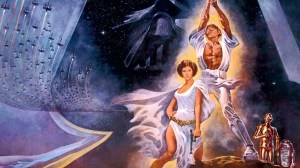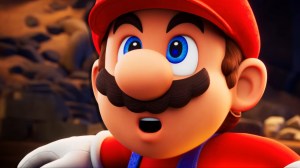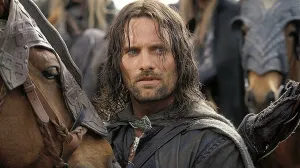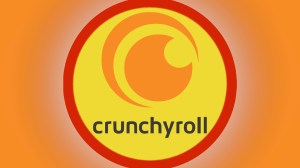When it comes to the slasher subgenre, horror fans often expect buckets of blood to spill across the screen over the course of a straightforward narrative, as that’s the formula that has been a success for decades. 2017’s Happy Death Day from director Christopher Landon had its work cut out for it, as it not only offered audiences a much more complex narrative, but also earned a PG-13 rating, holding back on the more gruesome elements of the subgenre. That gamble ended up paying off, as the film went on to earn $125 million on a reported budget of $5, leading towards this year’s Happy Death Day 2U.
Videos by ComicBook.com
These were far from being Landon’s first brushes with the genre, having previously delivered audiences films like Disturbia, multiple Paranormal Activity sequels, and Scouts Guide to the Apocalypse. While his earlier efforts earned him fans, his work on the Happy Death Day sequels earned him a legion of admirers, while his successful partnerships with Blumhouse Productions have already earned him another confirmed film on the way.
ComicBook.com recently caught up with Landon to discuss the franchise, his connection with horror, and what the future might hold.
Shifting Gears

ComicBook.com: The first Happy Death Day earned lots of fans in the horror world, but the sequel shifted gears a bit to lean more into the sci-fi and comedy realms. You also opened up the notion of how, when faced with tragedy and desire to live in an alternate reality, that will always come with a personal sacrifice. Can you talk about the process of expanding the world of the original premise?
Christopher Landon: When we set out to make the sequel, I knew that I was not going to be able to make another slasher-meets-Groundhog Day movie. Nobody had the stamina to go through that again. And even if you made it about another character, which was the misdirect of the beginning of that movie, the, “Oh, now we’re going to follow this guy and he’s going to die a bunch of times and we’re gonna try and help solve who’s killing him.”
I remember when I pitched it to Blumhouse, specifically to [producer] Jason [Blum], he was like, “You realize you’re changing genres on the audience? Like you’re going from a horror-comedy into more of like a sci-fi adventure-comedy?” And I was like, “Yup, I’m okay with that.” It was a fun, weird opportunity to do something different. But also, more specifically, to do something really personal because my mom passed away about three and a half years ago and it was just a really personal story for me.
I also thought it was a really important message to try to put out into the universe and specifically to the younger audience that I hope goes to see this stuff. That if they’re going through shit, they’re going through loss, that they’re on the path that they’re supposed to be on and that you are the sum of your experiences and you don’t get to erase that, no matter how hard you try. So I was really proud. I know that the movie wasn’t the box office massive bonanza that Universal wanted it to be the second time around. But I think everybody involved was really proud of the movie that we made and that we did something different in that a movie that was trying to say something.
Horror Upbringing
When you were growing up, what first tipped you off that horror was your passion?
I started watching horror films at a very, very, very young age. My dad loved horror movies and so it was a thing that we did together. So he let me see stuff probably maybe a little too early. John Carpenter was a massive influence for me, still is. I think it’s a lot of stuff that everybody, especially horror nuts like me, the stuff that’s like scripture. Halloween, The Thing, Rosemary’s Baby.
I was watching really random stuff too. And not to say that these were the movies that I wanted to necessarily build a career on, but they were movies that still influenced me because of their wacky nature. So I Dismember Mama and Microwave Massacre. I watched all this wacky shit because I was a Joe Bob Briggs kid. That was the stuff, it was really fun for me.
I think there was a moment, I remember when I was maybe 11 or 12 years old and I went to see James Cameron’s Aliens on opening night. And I remember when Sigourney Weaver comes out in the loader and she has the classic line where she says, “Get away from her, you bitch.” And I remember so vividly the audience just losing their minds, watching grown-ass people around me leap out of their seats and cheer. And it was a formative moment in my childhood where I was like, “I want to make people do that.” And it wasn’t so much the scaring people, it was having the ability to give people a shot of adrenaline and excitement and joy. And so that was a big, big moment for me.
And from that point forward it was really like, “How am I going to figure this out? How am I gonna get to do this as a job?” And really that was my path from that point forward. I watched movies religiously. I started writing in my teens and I was in film school in college and writing spec scripts. And just my whole life was movies at a very early age. I made short films with my friends in high school. So this was always the thing that I just really wanted to do.
Obviously horror is a hugely popular thing, but when you’re growing up and are more interested in watching movies like Microwave Massacre than getting involved with sports, it can ostracize you from your peers, but being a gay horror fan would likely ostracize you even further.
Well, I’ll take a step back, which was the idea that being a horror fan, a horror kid, definitely separated me from my peers. And it did in a lot of ways. Other kids thought I was weird or that I had a morbid fixation. My own mother was kind of freaked out. I had a Pinhead [from Hellraiser] statue in my room and she was very religious and so she would do these clandestine sweeps of my room and gather my shit up and throw it out because she thought it was bad and evil. And so I know she was super worried about me. She’s like, “Either he’s just creative and this is an outlet or I’m raising a serial killer.”
And then the gay side of it too, I think I retreated to horror so much because of that fact and because I was so afraid of having to figure myself out and face that truth about myself. And there were movies that came along the way where I was like, “Oh, there’s something else going on here.” And I think the movie that so many gay men, especially my age, go to is A Nightmare on Elm Street 2, which, you just felt it in that movie. I was like, “This guy’s shirtless a lot, this guy gets upset every time this girl tries to have sex with him or whenever she wants to make out. There’s a lot of gay shit going on in this movie.” And I remember watching that movie and being like, “Huh,” but I wasn’t mature enough to really identify what that was.
I remember both of my parents were big Hitchcock fans and so I watched a lot of Hitchcock growing up. Psycho was the first truly scary thing I had ever seen. And I remember watching Rope and also being like, “Hm, these two guys seem like they’re more than just pals.”
So there were certain movies along the way and then I had crushes on random people in movies growing up, which is just normal, I think. In terms of the horror stuff, I remember being really drawn to Suspiria. I remember really loving [director Dario] Argento and loving the use of color. There was an aesthetic there that felt unique and feminine, to me, that was so different for anything else, and that was in horror. So it was a way for me to steer away from the T&A side of horror films and more towards the artful side of it. And I think that really appealed to me because I was this gay kid.
Changing Course

Back to Happy Death Day, there’s the dramatic shift in tone between the first movie and the second movie. Was that idea always in the back of your mind as the overall trajectory when you were working on the first movie?
I came to the first movie as a writer first, and so it did start out with me helping to really develop the identity of the original film. So I started out there, and then for the second one, I had a random light bulb turned on when I was driving one day, which is where most of my ideas sadly come from because I’m always in traffic, and I had this idea for a trilogy. I suddenly saw the path. I was like, “Wait a minute.”
A lot of people were asking, “Well, what caused the time loop?” And to be honest, traditionally I would never seek to answer that question. I always think that the mystery is better than the answer. And that’s why, in zombie movies, I don’t really care about what started the outbreak. I like to keep things in a more mysterious space. But I saw an opportunity here to both explain why Tree was trapped in this loop, but also it allowed me the opportunity to do something completely different. So with this device I was able to create alternate and parallel universes. And so that was very, very appealing to me. And so I started to really run with that and that’s kind of what led me down this path for the sequel.
And when you were writing the sequel, were you also thinking of what the third film would be?
I focused mainly on the first sequel. So my typical process is, when I get an idea, I try to sit down and just put pen to page as quickly as I can and to just get out as much as I can. And I find, and I think a lot of people will say this, when the writing’s good, it just comes out of you. It’s almost like you’re purging something. And so I sat down and I just wrote the whole movie out. And so I had a very strong grasp of what the sequel was pretty quickly. And then in terms of the ending of the sequel, if that was what dovetailed me into, “Oh, but this is the third movie, and then this is how this whole thing ends.”
And so I had a fair amount of detail for the third movie as well, though I did not write a script. I have an outline for that third movie, but I did not bother writing the script just because, A) I was making the second movie and B) I didn’t want to assume that like, “Oh, I’m going to make a third movie.” And my assumption was pretty correct.
Scream Love
When looking at other franchises, you’ve spoken before about your interest in the Scream series. Is there any word on you getting involved in that franchise?
I love Scream. Scream is an amazing franchise, especially the first movie, which blew my mind when I saw it back in the day. And I think [writer] Kevin Williamson is so crazy talented and also a friend of mine. I also just think that there are a lot of stories to tell and I think that when you step back into a franchise, you better be doing it for the right reasons and it better be because you have a really good story to tell. And so I think there’s sometimes an unnecessary appetite for sequels and reboots. If you’ve got a cool story to tell, yeah, go for it, man. But otherwise, let’s just do something new.
Much like Happy Death Day reimagined the slasher premise, Scream similarly did that with its satire and meta elements.
It totally works. And I love that stuff, too. It’s the granddaddy of meta-horror, meta-slashers. But what’s interesting about watching how the trends move, I think [last year’s] Halloween was so successful as a reboot/sequel because it wasn’t attempting to be anything but very genuine. And, it was, in many ways, good fan service, but it was also like, “We have a character-driven story to tell here.”
And so that, for me, is like, there’s a reason to make that movie. That’s not just a cash grab.
The Future
Another big strength of Happy Death Day is Jessica Rothe, who seemingly came out of nowhere and became this beloved horror star. Even if there might not be the third film in the foreseeable future, will you two collaborate again?
She’s amazing. I would pretty much just do anything with her. I have something that’s very, very, very like, nascent stages, very early, that’s super exciting that, when I get past this next movie, I hope it’s the next thing I get to tackle. And I already talked to her about it. So there’s a thing I want to write for her, just because she’s like a partner in crime for me. And when you meet people that you creatively are so in sync with, but even beyond that, just personally you’re just so in sync with, you don’t want to waste that. So we’re both super eager to work together.
You’ve also made multiple contributions to the Paranormal Activity franchise, can you see yourself returning to that series?
I think the creative forces behind that franchise, I think everyone’s only interested in really doing it if it can be done well. So it’s another one of those “see what happens” kind of a thing. I really loved that franchise and I enjoyed working and being a part of that team. It was an enormous amount of fun, but it was one of those things, too, that as the franchise went on, it was diminishing returns. It was a very difficult thing to sustain and that’s the nature of franchise-building. So we’ll see what happens there. But I don’t think there’s anything crazy happening just yet.
*****
Stay tuned for details on Landon’s next movie with Blumhouse and the fate of the Happy Death Day franchise.
Image courtesy of Gregg DeGuire/Getty Images








